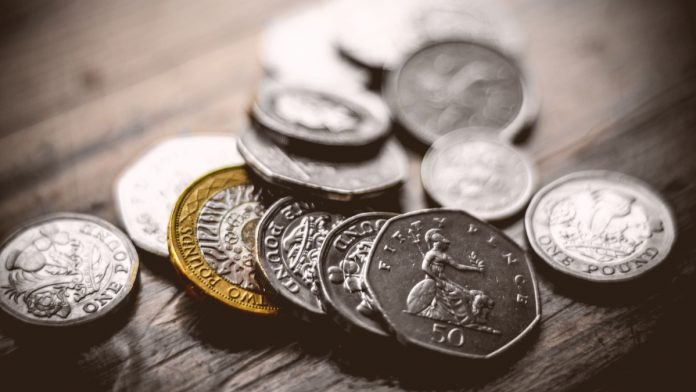- Pound (GBP) rises, snapping a 3-day losing run.
- UK GDP jumped to 0.6% QoQ in Q1
- Euro (EUR) is falling but is set to rise across the week
- ECB minutes confirm intention to cut in June
The Pound Euro (GBP/EUR) exchange rate is rising after 3-days of losses. The pair fell -0.1% in the previous session, settling on Thursday at €1.1613 and trading in a range between €1.1594 and €1.1643. At 16:00 UTC, GBP/EUR trades +0.08% at €1.1623. The pair is still on track to fall 0.35% this week, marking the second straight weekly decline.
The pound is rising after stronger than expected UK GDP data showed that the UK economy has rebounded out of a recession in the first quarter of this year.
The data from the Office of National Statistics showed that the UK economy grew 0.6% quarter on quarter in the first three months of 2024, rebounding from a 0.3% contraction in the final quarter of last year. This was also ahead of expectations of 0.4% growth.
The strong growth is unlikely to knock the Bank of England off track for cutting rates in the coming months. Yesterday, at the Bank of England interest rate decision, the central bank left rates unchanged at 5.25%, but the vote split was more dovish, and Governor Andrew Bailey hinted that a June rate cut could be on the table.
However, if the UK economy continues to rebound strongly in the second part of the year amid lower interest rates and improving real wages, that could add inflationary pressures, meaning that the central bank will have less room to cut interest rates further.
Meanwhile, the euro is under pressure ahead of the release of the minutes from the April ECB meeting.
The minutes confirmed the central bank’s rate cut intentions for June, barring any major surprises over the coming weeks. They showed that most policymakers wanted more data to confirm inflation was cooling before cutting rates, although some were keen to cut rates at the April meeting.
The minutes also showed that policymakers were increasingly confident that the eurozone economy had turned a corner and was starting to recover.





